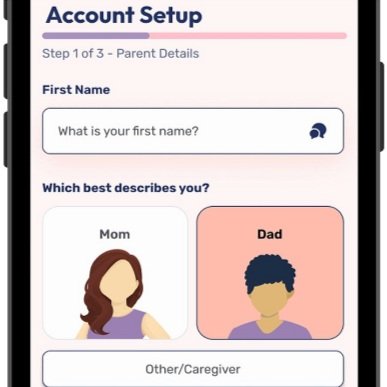The Importance of Supporting Fathers in the Workplace: A Guide for HR Professionals.
Supporting working fathers not only benefits employees but also improves company morale, productivity, and talent retention.
In today's evolving workforce, fathers play an increasingly significant role in their children's lives. As the dynamics of fatherhood shift, employers need to adapt their workplace practices to support working dads effectively. This not only benefits employees but also brings significant advantages to businesses themselves.
The Evolving Role of Fathers
Research shows that fathers are more involved in their children's lives than ever before. They spend more time on childcare, and societal expectations increasingly emphasize shared parenting responsibilities. This shift necessitates a corresponding change in workplace policies and culture. The Pew Research Center published their survey findings, which stated that a majority (71%) of Americans think it’s important for new babies to have equal time to bond with their mothers and their fathers, while about a quarter (27%) think it’s more important to bond with their mothers and just 2% say it’s more important for them to bond with their fathers.
Paternity Leave: A Crucial Benefit
While maternity leave is becoming common, paternity leave is less frequently taken advantage of. Many fathers do not utilize their full leave due to a lack of support or fear of career repercussions. However, paternity leave offers numerous benefits for both fathers and their families. It promotes bonding, reduces parental stress, and can even positively impact mothers' careers. Paternity Leave is becoming a more popular benefit, with SHRM reporting that 32% of employers now offer it.
Beyond Paternity Leave: Supporting Working Dads
Supporting working fathers goes beyond offering paternity leave. Employers can create a supportive environment through flexible work arrangements, encouraging open communication about family needs, and promoting a culture that values work-life balance for all employees.
Benefits for Employers
Supporting working fathers isn't just a matter of social responsibility; it also makes good business sense. Companies that offer family-friendly policies, including paternity leave and flexible work options, are more likely to attract and retain top talent. They also experience increased employee morale, productivity, and loyalty.
Recommendations for HR Professionals
Educate: Inform employees about available paternity leave policies and encourage open conversations about family needs.
Lead by Example: Encourage company leaders to take paternity leave and openly discuss its benefits.
Foster Flexibility: Offer flexible work arrangements whenever possible to accommodate childcare responsibilities.
Promote a Supportive Culture: Create a workplace culture that values work-life balance and respects the diverse needs of employees.
Consider Leva App: Explore Leva App's new functionality as a tool to support working fathers in their parenting journey.
The Research
Our article references several pieces of published research that support the need for paternity leave and overall support for working fathers:
Institute for Family Studies (IFS): This research indicates that fathers are spending more time with their children than in the past, highlighting the importance of supportive workplace policies.
Pew Research: Data from Pew Research reveals that most Americans believe in equal focus on work and childcare for both parents, emphasizing the societal shift towards shared parenting responsibilities.
National Fatherhood Initiative: This research suggests that involved fathers tend to have better health, be more active in their communities, and serve as positive role models.
McKinsey: Their study found that fathers who took paternity leave were more motivated, productive, and likely to stay with their organizations.
World Economic Forum: This research points out that a significant number of fathers fear taking paternity leave due to potential career repercussions, highlighting the need for supportive workplace cultures.
Increased paternal involvement during the early stages of a child’s life has been linked to positive child development outcomes and improved maternal well-being.
Conclusion
Supporting working fathers is a win-win situation for both employees and employers. By implementing family-friendly policies and fostering a supportive workplace culture, companies can attract and retain top talent, boost morale, and ultimately improve their bottom line.
Author: Vanessa Jupe | Founder, Leva Platform
Sources
Pew Research Center. "Americans Widely Support Paid Family and Medical Leave, but Differ over Specific Policies." Pew Research Center's Social & Demographic Trends Project, 23 Mar. 2017, www.pewresearch.org/social-trends/2017/03/23/americans-widely-support-paid-family-and-medical-leave-but-differ-over-specific-policies/#:~:text=The%20survey%20finds%20that%20a,to%20bond%20with%20their%20fathers.
Society for Human Resource Management (SHRM). "Paid Paternity Leave on the Rise, but Still Not the Norm." SHRM, www.shrm.org/topics-tools/news/benefits-compensation/paid-paternity-leave#:~:text=According%20to%20SHRM%20research%2C%20paid,by%2032%20percent%20of%20employers.
FlexJobs. "Men Want Paid Paternity Leave and Employers Should Too." FlexJobs, www.flexjobs.com/blog/post/men-want-paid-paternity-leave-and-employers-should-too/.
Introducing Leva App's New Functionality
Leva App, a platform designed to support parents, has recently introduced a new functionality that allows partners and caregivers to join the app and collaborate on childcare tasks. This feature facilitates communication and coordination among caregivers, making it easier for fathers to actively participate in parenting, even while at work.



